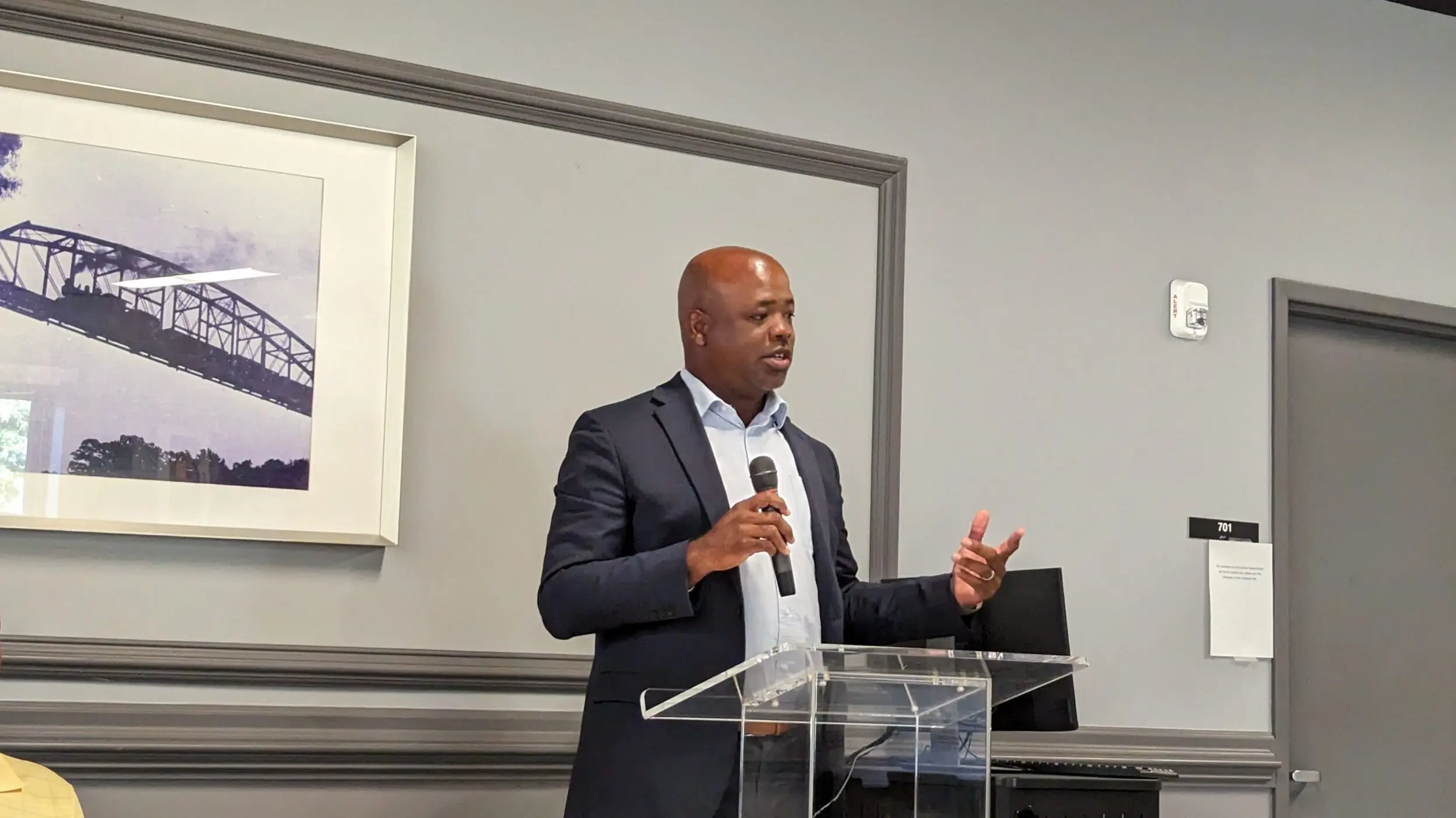|
Getting your Trinity Audio player ready...
|
Rep. Chris England, D-Tuscaloosa, filed a bill last year that would have raised the online sales tax and distributed that new revenue to schools.
The bill morphed over the course of the session, and eventually came before a House committee without any of the revenue being directed to schools.
England has filed a new version of the bill for the upcoming session that returns the focus back to replacing school funding as local sales tax gives way increasingly to online sales tax.
HB36 would raise the Simplified Sellers Use Tax, the official name of Alabama’s online sales tax, by 1.25 percent and that new revenue would go to schools based on the previous year’s enrollment.
The bill does not impact the SSUT’s current distribution model, which diverts most revenue to state and local general funds over education.
Half of the current 8 percent sales tax goes to the state, with 75 percent of that come going to the state general fund and 25 percent to education. The other half of the tax goes to municipalities and counties with no requirement for any of that money to go toward local education.
The revenue has been a boon to county and municipal general funds, with many counties dedicating much of their local sales tax revenue primarily toward schools. This has led to some concern among school boards as shoppers continue to trend toward making purchases online, potentially cutting into a revenue stream for the schools.
Some counties have voluntarily entered agreements with local boards to share the SSUT revenue after these concerns have come up.
England said in the last session that raising the SSUT would put the online sales tax rate in line with local tax rates, which could help level the playing field between brick-and-mortar stores and online retailers. But the new funding would give education a piece of the pie when it comes to online shopping.
The state created the SSUT when collecting sales tax on online purchases was still voluntary; a U.S. Supreme Court decision has long since determined that states can require online retailers to remit sales tax. Alabama offered retailers at the time a flat rate of 8 percent to encourage voluntary remittance, which England said is no longer necessary.
Critics have questioned the bill as a tax hike on citizens, as the new rate would be expected to be passed down to the consumer.
The Association of County Commissions of Alabama and the Alabama League of Municipalities have indicated they’d like local governments to see some of the revenue if it is increased.
ACCA Executive Director Sonny Brasfield told Alabama Daily News that the association wouldn’t support a version of the bill that dedicated any less than 20 percent of new revenue to counties.
There are also those who have vowed to oppose the bill regardless of how the revenue is distributed because they don’t support raising the tax on citizens.















































